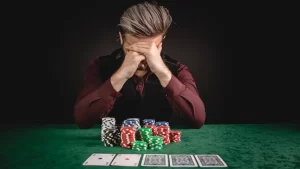
Casino gamblers need to understand the interplay of chance and probability when it comes to gambling at casinos. While many games rely on luck alone, others require skill, strategy and even tactics from gamblers.
To successfully play casino games, it’s essential to understand the house edge and how it affects your chances of victory. This article focuses on this concept and how it relates to winning in casino environments.
Game of chance
Many people mistake gambling as being solely dependent on chance, when in reality mathematics plays a significant part in its success. Laws of large numbers and probability play crucial roles in helping casino gamers make informed decisions and increase their odds of victory.
Chance-based games can be exhilarating and thrilling for players, yet players must remember they do not have control of the outcome of each game they participate in – an aspect which may bring relief for competitive gamers who prefer skill-based titles.
Probability can be an inherently confusing concept for players because its interpretation often leads to cognitive distortions such as Gambler’s Fallacy.
Game of skill
Casino games vary from those that rely on chance alone, to games like poker that require both skill and strategy to master. Understanding this distinction between chance and skill in casino gaming is important for success.
Probability is a mathematical concept used to represent the chances of an experiment’s outcomes, calculated as the ratio between unfavorable possibilities and favorable ones. It can be used as an estimate for expected value or average gain when betting online casino games or sports bets.
Determining whether casino games are games of chance or skill has long been the subject of heated debate since Gerolamo Cardano published one of the first guides to gambling back in 16th century Italy. Today, this distinction is typically determined through legal process known as predominance test or material element test.
House edge
The House Edge refers to the advantage a casino game holds over players. It is calculated using percentages built into all games – whether purely random like roulette and slots or skill-based card games such as poker. Understanding how it works allows you to make better informed decisions when gambling casino games.
Probability is a mathematical concept used in gambling that measures the likelihood of an event taking place. While often used to quantify game outcomes, probability also has many other practical uses in daily life and comparison between types of games – helping players avoid making bad bets by helping avoid unnecessary risks like making too many wagers on bad odds games such as blackjack or video poker where skill plays an essential part of winning! In general, house edges tend to fall below zero percent but can rise considerably for these more intricate forms of wagering such as blackjack or video poker which require greater skill when betting with money management being the central theme if necessary for example when discussing game outcomes as in addition to game outcomes being expected through mathematics based on probability theory.
Bonuses
Many casino games involve both skill and chance. Although skill may be subjective, winning chances can be objectively evaluated using probability calculus. This technique decomposes complex events into equally probable elementary ones before applying classical distribution formulas to calculate numerical probabilities for them. It can also be used to determine odds that an event occurs within a game itself – for example when evaluating pari-mutuel pools for horse racing or athletic competitions.
Reminding oneself this fact when playing gambling games is essential, since the house always holds a mathematical edge over their players. Therefore, understanding and taking advantage of probability laws is vital, while keeping in mind the Law of Large Numbers states that ratios predicted by probability statements become more accurate as more events take place.
Regulations
Probabilities and statistics are at the core of gambling, yet players can use various strategies to overcome the house. These may include analyzing opponent strengths and odds in poker or determining how much to bet in slots – all which have proven successful over time. Gerolamo Cardano attempted to quantify chance in 16th century Italy which eventually lead to probability theory being developed further by subsequent scholars.
Regulation changes can have a major impact on participation levels for certain games. An example would be how gambling on slot machines dropped following their ban. Studies have also revealed how social accessibility may influence female participation rates – this could include increasing regulated games in land-based bingo premises or marketing foreign websites as more socially acceptable.





